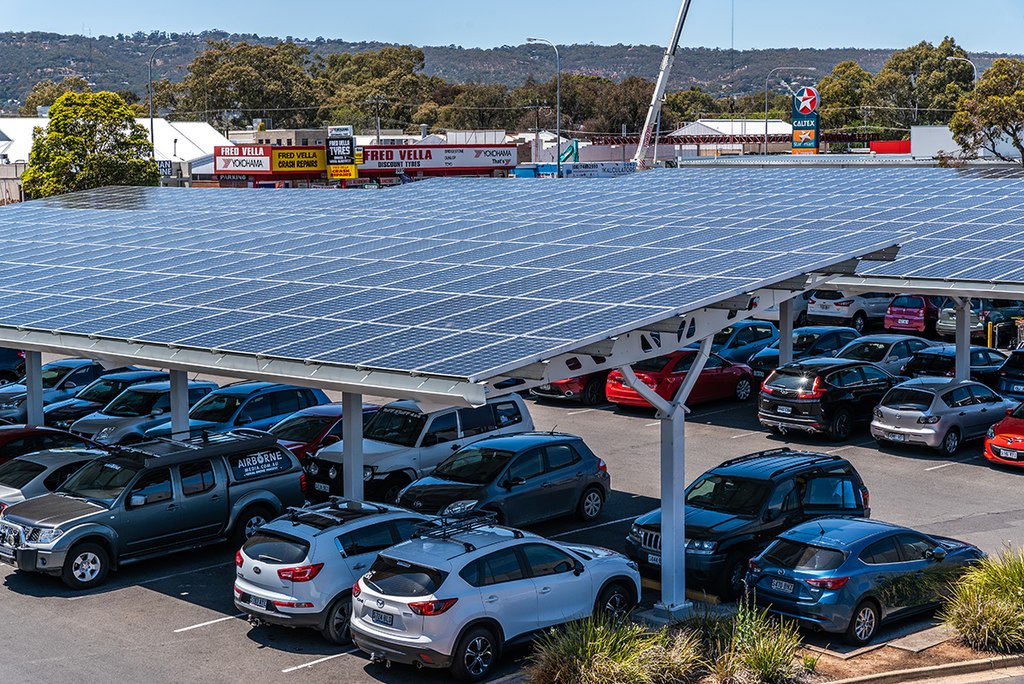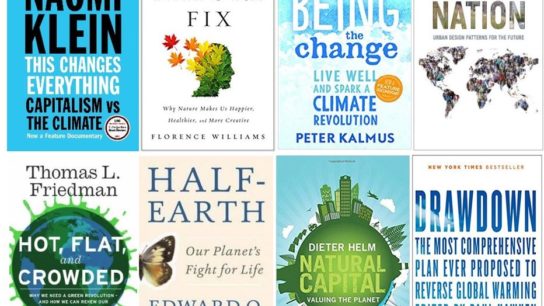The technology sector is undoubtedly one of the dominating sectors of the world, but it also makes it one of the biggest pollutants on the planet. But these sustainable tech companies are leading the way and making concrete effort in reducing their climate impacts and in protecting the environment.
—
If you are reading this article at this moment, you must be using an electronic device such as a smartphone, a laptop, or a smart tablet. Electronic devices have become an inseparable part of our lives, that the information and communication technology sector now makes up over 2% of global greenhouse emissions. It is estimated that it will constitute 15% of global emissions by 2040, which is equivalent to half of the entire world’s transportation sector emissions. Globally, we also generated an estimated 57.4 million tonnes of electronic waste, or e-waste, in 2021. Together, they create a huge negative impact on the environment, a problem which can no longer be neglected.
In this technological era, it is rather impossible for us to stop using these devices, so what we can do instead is to support sustainable technology companies such that the least degree of harm will be inflicted on the environment?
In 2017, Greenpeace evaluated 17 technological companies in terms of their environmental performance. Fairphone came up as the top company, with Apple being the second, followed by Dell, HP, Lenovo, and Microsoft. While these six brands continue their efforts to be as environmentally-friendly as ever, other companies including Intel and Samsung have been working hard to reduce their environmental impacts. These are the top 8 sustainable tech companies in the world right now, which have made great efforts to make sure their supply chains and operations do the least damage on Earth.
1. Fairphone
To reduce its greenhouse gas emissions, Fairphone introduced a special design for their new Fairphone3 in 2020. This design can extend a phone’s lifetime from an average of 2.7 years to about five years, which leads to a significant 30% reduction of greenhouse gas emissions per year of use, across the entire life cycle of the phone. Fairphone’s effort doesn’t stop here. The company has increased the amount of fair materials integrated into the supply chain for their new phones. Each Fairphone 3+ is made with 41% post-consumer recycled plastics – a jump from the 9% for the original Fairphone 3. In 2020, Fairphone also successfully refurbished about 40% of the smartphones that were collected, and what couldn’t be reused were safely recycled. What’s more, for 18% of the Fairphones sold in Europe, Fairphone compensated by collecting old devices through this takeback programme, exceeding its original target of 14%. Together, the progress makes Fairphone one of the top sustainable tech companies at the moment.
2. Apple
Since 2015, Apple’s carbon footprint has decreased by 40%, making a steady progress towards their 2030 carbon neutrality goal. Apple has reduced their energy use by 13.9 million kilowatt-hours through efficiency efforts implemented in fiscal year 2020, and their suppliers in its Supplier Energy Efficiency programme avoided more than 900,000 annualised metric tons of supply chain carbon emissions. In 2020, Apple-created renewable sources account for 90% of the renewable electricity its facilities use – around 1.5 gigawatts currently in use and another 30 megawatts under contract. Moreover, Apple is scaling the use of recycled plastics across its products. The mesh fabric of HomePod mini for example, is made with 90% recycled plastic. In total, Apple introduced more than 70 parts with an average of 50% recycled plastic in fiscal year 2020.
3. Dell
Dell is ranked one of the top sustainable tech companies for its efforts, and is currently partnering with its suppliers to reduce its greenhouse gas emissions by 60% per unit revenue by 2030 and to achieve net-zero greenhouse gas emissions by 2050. Dell’s carbon emissions have already been reduced by 48,842 metric tons from 2019 to 2020 through energy consumption reduction projects at supplier factories, illustrating an optimistic progress towards their respective goals in 2030 and 2050. Aside from greenhouse gas emissions control, Dell’s renewable energy usage across the supply chain has also reached over 2 billion kilowatt-hours in 2020 while the amount of freshwater saved has also risen from 29.9 million cubic metres in 2019 to 43.4 million cubic meters in 2020, indicating a 45% increase. Dell also reduced water discharge drastically from 26.2 million cubic metres in 2019 to 38.9 million cubic metres in 2020, which is equivalent to a 48% increase.
4. HP
In April 2021, HP announced their new goals in reaching carbon neutrality in its operations by 2025 and reducing their value chain greenhouse gas emissions by 50% by 2030. HP also strives to achieve net zero greenhouse gas emissions across its value chain by 2040.
HP is already making remarkable progress. In 2020, HP’s carbon footprint equaled almost 45 million tonnes of carbon dioxide equivalent, which is 4% less than in 2019. The tech company achieved a triple “A” rating for its transparency and action on climate, forests, and water for the second year in a row, and has also been recognised as a CDP Supplier Engagement leader. It was also named to the CDP Climate “A” list for the seventh year in a row for their actions to cut emissions, mitigate climate risk, and develop the net zero carbon economy. As for its water footprint, HP managed a volume of 209,097,000 cubic meters in 2020, dropping 11% from 2019.
You might also like: The Environmental Impact of Broken Technology and the Right to Repair Movement
5. Lenovo
One of Lenovo’s primary environmental objectives for its operational facilities is to minimise the waste it generates, and to maximise recycling and reuse within their operations. To support this, Lenovo sets a target to reuse or recycle at least 85% of their operational nonhazardous waste. In 2020, it achieved an overall nonhazardous waste reuse and recycling rate of 88.6%, exceeding their original goal and showing overall success. Moreover, Lenovo achieved a 92% emissions reduction in 2020 relative to 2009, meeting their targets as well, but has promised to work further on its sustainability.

6. Microsoft
Microsoft is planning to be carbon negative by 2030 and to remove all the carbon dioxide it has emitted since it was founded in 1975 from the atmosphere by 2050. In 2020, it has reduced emissions across all scopes by 586,683 metric tons of CO2 and has invested USD$50 million in improving its sustainability. Outside its own operations, Microsoft invested $10 million to support innovative technologies for water conservation, access, and quality, while increasing their replenishment project portfolio by nearly 700% from 2019 to nearly 20 replenishment projects.
Additionally, Microsoft aims at reducing as much waste as it creates across their direct operations, products, and packaging. The tech company has already invested $30 million in accelerating recycling and building a more circular economy at scale. And in 2020, Microsoft successfully diverted more than 60,000 metric tons of the solid waste otherwise headed to landfills and incineration from their campuses and data centres.
7. Intel
Intel claims that it aspires to be global leader in sustainability and enables their customers and others to reduce their environmental impact through their actions and technology. It has invested in environmental projects and set company-wide environmental targets, seeking to drive reductions in greenhouse gas emissions, energy use, water use, and waste generation. One of the ways to achieve this is by working with other stakeholders to expand the technology “handprint” – to accelerate the application of technology to reduce climate impact across the global economy.
In 2020, Intel has achieved remarkable progress to join the list as one of the top sustainable tech companies. It conserved 7.1 billion gallons of water internally and invested in water restoration projects that saved more than 1.3 billion gallons during 2020. These both advanced Intel’s goal towards net positive water use, resulting in 90% of freshwater usage returned or restored in 2020. Intel also significantly increased its renewable energy supply and purchases up to 82% globally, including 100% in the US, Europe, Israel, and Malaysia. Over the last five years, Intel has purchased more than 26 billion kWh of renewable power, enough to power more than 2.4 million US households for one year. Moreover, Intel sent only approximately 5% of its total waste to landfill in order to work toward its goal of zero total waste to landfill by 2030. At the end of 2020, circular economy practices were applied to 63% of its manufacturing waste streams via reuse, recovery, or recycling.

8. Samsung
Samsung has created and implemented various action plans including installing solar and geothermal facilities in their parking lots, roofs, and new buildings to expand renewable energy use in their worksites. These efforts led to a three-fold increase of renewable energy usage in 2020 compared to 2018. In 2020, Samsung set down an aim to generate 100% of the energy used in their worksites in the United States, Europe, and China from renewable energy sources, a goal which is successfully met. Besides reducing its energy usage, Samsung succeeded in meeting its aim of recycling 95% of their manufacturing waste in 2020, along with reducing their carbon emissions in 2020 by 250 million tonnes from 2009 levels. Furthermore, the tech company exceeded its goal and collected 4.54 million tonnes of e-waste in 2020, and has set higher sights to collect 7.5 million tonnes by 2030.
In 2020, Samsung implemented a total of 540 greenhouse gas reduction (GHG) projects. As a result, it reduced GHG emissions by a total of 7,091 thousand tonnes, an increase of 39% compared to the amount of GHG reduction achieved in 2019.
Featured image by: Wikimedia Commons

















